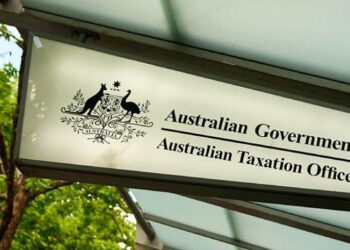Speaking in a webinar hosted by Accurium on Monday, Evolv chief executive Arthur Favos said a common query received by the audit firm around SMSF wind-ups was how soon a fund’s account needed to be closed as part of the wind-up process.
“A lot of people think you’ve got to close the account at the point that the fund is wound up and before you go into audit,” Mr Favos said.
“The ATO guidelines say that the majority of assets should be rolled out at that stage, but you should leave enough in the account to cover things like audit fees and tax liabilities, then lodge your final return once you get your audit report. So, you don’t close your account until everything is actually finalised.”
SuperGuardian education manager Tim Miller added that it was important enough cash was left in the SMSF’s bank account to cover relevant expenses rather than the trustee having to pay for these in a personal capacity.
“Any expenses of the fund should be paid by the fund — you don’t want to start to mess with contributions or reimbursements because they can lead to an untidy approach from an audit point of view,” Mr Miller said.
“So, as much as possible, pay everything from the SMSF directly even if you are holding it in a non-interest bearing account.”
SuperGuardian associate director and senior client manager Jason Poser added that any outstanding credits to the SMSF also needed to be considered, including tax refunds that could be payable after the fund had been wound up.
“We get a lot of questions around whether trustees want to leave the bank account open if they are getting a tax refund, because they could then have issues trying to bank that cheque if there’s no cash account for the SMSF,” Mr Poser said.
“We don’t want to be afraid of leaving that account open — the interest and other small transactions aren’t a major issue and the auditor is going to be pretty comfortable with those transactions.”
However, Mr Miller clarified that in some situations if the SMSF was likely to have large ongoing transactions into the next financial year, it may be more practical to delay the winding up of the fund.
“If someone is winding up an SMSF in the accumulation phase, you might have a quarterly SG contribution you are unaware of that the employer doesn’t pay into the account until next financial year, so that is received as income and you can’t wind up the fund until [the following] 30 June,” he said.
“You need to have awareness of the transactions that might occur and be up front with the trustees to say you need to transfer into the next year and wind it up then.”



I find there are many challenges with winding up an SMSF and leaving the bank account open. Hopefully someone can assist.
The ATO have previously said that you notify them in year 1 that the fund is closing though keep a bank account open to:
1. Receive a tax refund for year 1, or
2. Pay a tax liability for year 1
If we take scenario 1, the account now has a tax refund however the fund is closed. How does a subsequent benefit payment occur (eg rollover to another fund/lump sum payment). This is still superannuation money though has been paid to an account that is in the name of an SMSF however the SMSF was wound up.
Take scenario 2, an amount was held in the bank account to pay the liability. In many instances the account would have accrued interest in year 2 however the SMSF closed in year 1. What entity completes a tax return for this interest?
A continuation of scenario 2, if on the other hand you decide not to wind up the fund in year 1 because of the issue above and you decide you will wind up in year 2 once the tax liability for year 1 is paid, you still end up with the issue mentioned above, it’s just moved a further year down the track. That is, you close the fund in year 2 however you know you have a tax liability for year 2 so keep a bank account open after the fund is closed. You have interest in year 3 that would ordinarily be taxed in the name of the SMSF however it has now closed……
As you allude to in the article, maybe you need to use a no interest account to overcome scenario 2.